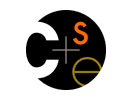|
|
|

|
|
Course Overview
|
|
|
This course addresses a broad
spectrum of issues in computer security and privacy,
ranging from cryptography, to systems security, to network security,
to usable security.
We will explore fundamental challenges in the design and
analysis of computer systems that must remain dependable
despite the actions of adversaries.
The goal of this course is to help you learn how to
think about, evaluate, and understand computer security issues.
back to
top
|
|
Grades for CSE P 590 C will be assigned as follows:
- Labs: 30%
- Homeworks: 30%
- Research: 20%
- Final: 20%
Grades for CSE M 590 will be assigned as follows:
- Labs: 30%
- Homeworks: 25%
- Research: 25%
- Final: 20%
You can check your grades here: https://catalysttools.washington.edu/gradebook/kohno/23003.
back to
top
|
|
There will be one exam (a final) for this course, officially scheduled for the following time (but the final might be a take-home):
- Final : Take-home, due Thursday, June 10, 2010, 6:30pm
back to
top
|
|
There will be four kinds of
homework
assignments given throughout the class:
- Reading: On some
days you will be
given reading
assignments associated with the lecture. You
should finish the reading before coming to the lecture -- I will
assume you've done this reading, and my lectures will enhance the
material, rather than regurgitate it.
- Textbook-style questions:
I will assign written homework based on either questions
from the text, or made-up questions.
These assignments should be
submitted by the due date.
- Broader contextual explorations:
We will use several approaches for exploring the broader context surrounding
computer security (people, ethics, society, levels of security, and so on).
We will be exploring these broader contextual issues with in-class discussions
and assignments.
- Extra-credit:
From time to time, I may pose a question or give an
assignment that is purely extra credit. I may award extra credit
for outstanding contributions to the in-class discussions.
I may award extra credit to people contributing greatly to the
course forum.
I may also give you the opportunity to earn
extra credit at the end of some lectures.
(Make sure you read
the late policy below.)
back to top
|
|
As you've probably guessed
from
the allocation of grades, labs will be a large portion
of this class.
These labs will give you an opportunity to explore computer
security first hand and will generally require a significant amount of
programming.
At least one project will involve mounting buffer overflow attacks against
real C programs, so you should be deeply familiar with C, assembly language,
and standard Unix command line development tools (like gdb).
back to
top
|
|
This course also has a research component.
For CSE P 590 (the
PMP course), this means reading research papers, submitting
written reviews prior to the start of class (no late reviews
accepted), and participating in the discussions of those papers
during class.
For CSE M 590, this means all of the above, plus presenting
one research paper to the class (like a traditional research
seminar).
back to
top
|
|
(Many of these policies are
taken
verbatim from previous instances of this and other UW CSE courses.)
|
|
back to
top
|
|


 CSE Home
CSE Home  About Us
About Us Search
Search Contact Info
Contact Info